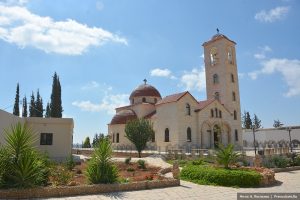Metropolitan Tikhon Shevkunov on Preparation for Eternity
From generation to generation, through images and parables the Church tells people about the great truth that each of us must experience, whether we believe or not, whether we like it or not, whether we want it or not. But man’s life will be cut off, and a new existence will begin. And as our current existence is of a temporary nature, the new existence of a human personality (that is, what makes up what is most important in us—our thoughts, strivings, feelings, desires—the content of our souls) is not destroyed at death. This is predestined by spiritual life and eternal life, outside of time. This is a truth that exists in all peoples in one form or another. But in Christianity this truth is strengthened by God’s special action. Something is revealed to us that can only be revealed in Christianity and in the Church, if we relate to it with faith: how to correctly enter into eternity; what awaits us, to what are we called (not obligated… obligated is not a good word) to do in order to prepare ourselves for this.
Children prepare themselves for adult life. You study, acquire knowledge, choose a profession so that later you can start a family, labor for the good of your close ones, your country, your people, and in general to live in a way that is interesting to you and beneficial to others. You need to prepare yourselves for this. But to prepare ourselves for the eternity about which the Church tells us time and again, we find neither the desire, nor the time, nor even the disposition—it’s “something, in the misty distance”. But when people approach their mature years and old age, they begin to think seriously about this. First of all, simply because they get smarter, and secondly, because so much experience gets stored up in the human soul. People understand that this really is in fact the most serious thing.
Perhaps the most serious mistake in human life is not realizing our potential. We are very smart when it comes to hindsight: “If only we knew, then when would have done it right. Then we would have had the strength to take the right direction…” How often do we have this late repentance… This parable talks precisely about missed human opportunities. The parable is called, “the rich man”. He has no name. For God, he doesn’t even have a name! He didn’t create a real personality for himself, he didn’t create a name for himself. This is not because he was rich. The misfortunate, impoverished Lazarus is remembered in Holy Scripture by his own name. He finds himself in the bosom of Abraham, as Holy Scripture states; he finds himself in the spiritual world, where Abraham is represented to us as an outstanding man, who was filled with faith and was one of the forefathers of the Lord Jesus Christ.
– Homily on the Parable of the Rich Man and Lazarus

**We are pleased to include writings from modern Monasteries from time to time as well as our traditional Elders**